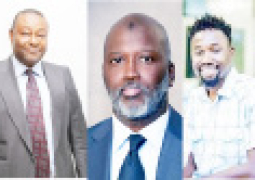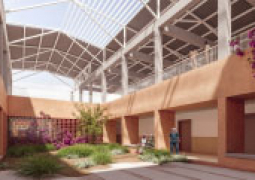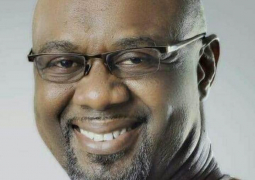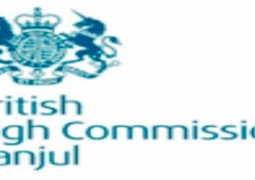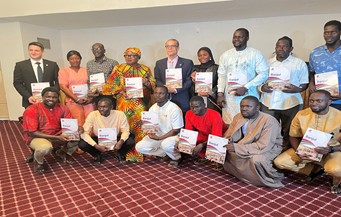
This historic document not only reflects the city’s progress in localising the Sustainable Development Goals (SDGs) but serves as a roadmap for future action, rooted in data, inclusivity, and accountability.
As cities around the world increasingly embrace the VLR process to align local governance with global development targets, Banjul’s bold step marks a turning point in The Gambia’s efforts to leave no one and no place behind.
The VLR represents more than a status report. It embodies a commitment to transparent leadership, citizen-driven planning, and evidence-based decision-making that responds directly to the lived realities of the people of Banjul.
“This document is not just a review. It’s a call to action,” declared Telman Maharramov, Partnerships and Programme Management Officer at UN-Habitat. “Since 2018, over 370 VLRs have been produced by 283 cities in 66 countries. Banjul now joins this global movement, reaffirming the power of local action in advancing inclusive, equitable development.”
Maharramov emphasised that Banjul’s VLR is anchored on stakeholder consultation, collaboration, and data-driven recommendations, all of which lay the foundation for long-term transformation.
Aisha Sillah, UN-Habitat’s National Technical Advisor and Focal Point in The Gambia, hailed the VLR as a shift from abstract global aspirations to practical, people-centred development.
“The localization of the SDGs is no longer just a conceptual ambition,” she said. “Banjul’s VLR reflects a shift in thinking; a movement that places cities and communities at the heart of transformative change. It is grounded in the realities of our people, shaped by the input of civil society, academia, private sector, and government alike.”
Sillah noted that the document not only captures progress but also offers clear direction on the next steps providing an actionable framework to achieve the SDGs locally.
Karl-Frédérick Paul, United Nations Resident Coordinator in The Gambia, underscored the significance of Banjul’s action-oriented and participatory VLR process.
“What sets Banjul’s VLR apart is not just its content, but the deeply inclusive approach that shaped it,” he said. “It serves as a platform for dialogue, trust-building, and collective action.”
Paul commended the visionary leadership of Mayor Rohey Malick Lowe, the dedication of the BCC team, and the collaboration between local and international stakeholders. He noted that Banjul’s experience will contribute to The Gambia’s upcoming Voluntary National Review at the High-Level Political Forum in New York, reinforcing the country’s commitment to transparency and inclusive governance.
“This is not merely a report; it is a blueprint for future development,” he added. “It will guide budget allocations, policy reforms, and cross-sector collaboration across all levels of government.”
Addressing the audience, Mayor Rohey Malick Lowe described the launch as a defining moment in the city’s journey towards sustainability.
“This VLR belongs to all of us,” she said. “It is the product of tireless work, expert insight, and unwavering commitment from every stakeholder involved. From dedicated task force members to UN consultants and local communities, you made this vision possible.”
The mayor praised the team for turning complex data and consultation into a unified document that meets global standards while reflecting Banjul’s unique needs. She especially highlighted the support of UN-Habitat and its team, calling their guidance “the backbone” of the project.
“This report is more than a document, it’s a blueprint for our future,” Mayor Lowe added. “It prioritizes what matters most to our people - quality education, clean water, food security, healthcare, climate resilience, and economic opportunities.”
She further called on national and international partners to help replicate the VLR process across other councils in The Gambia. “Imagine a country where every city has its own VLR,” she envisioned. “Where data drives development, and no one is left behind is the future we must build.”
Mayor Lowe stated that Banjul’s VLR is a bold declaration of vision, accountability, and local leadership. As cities around the world take charge of their development futures, Banjul’s pioneering example underscores that sustainable development begins at home with local voices, local action, and local solutions.
Read Other Articles In Headlines
